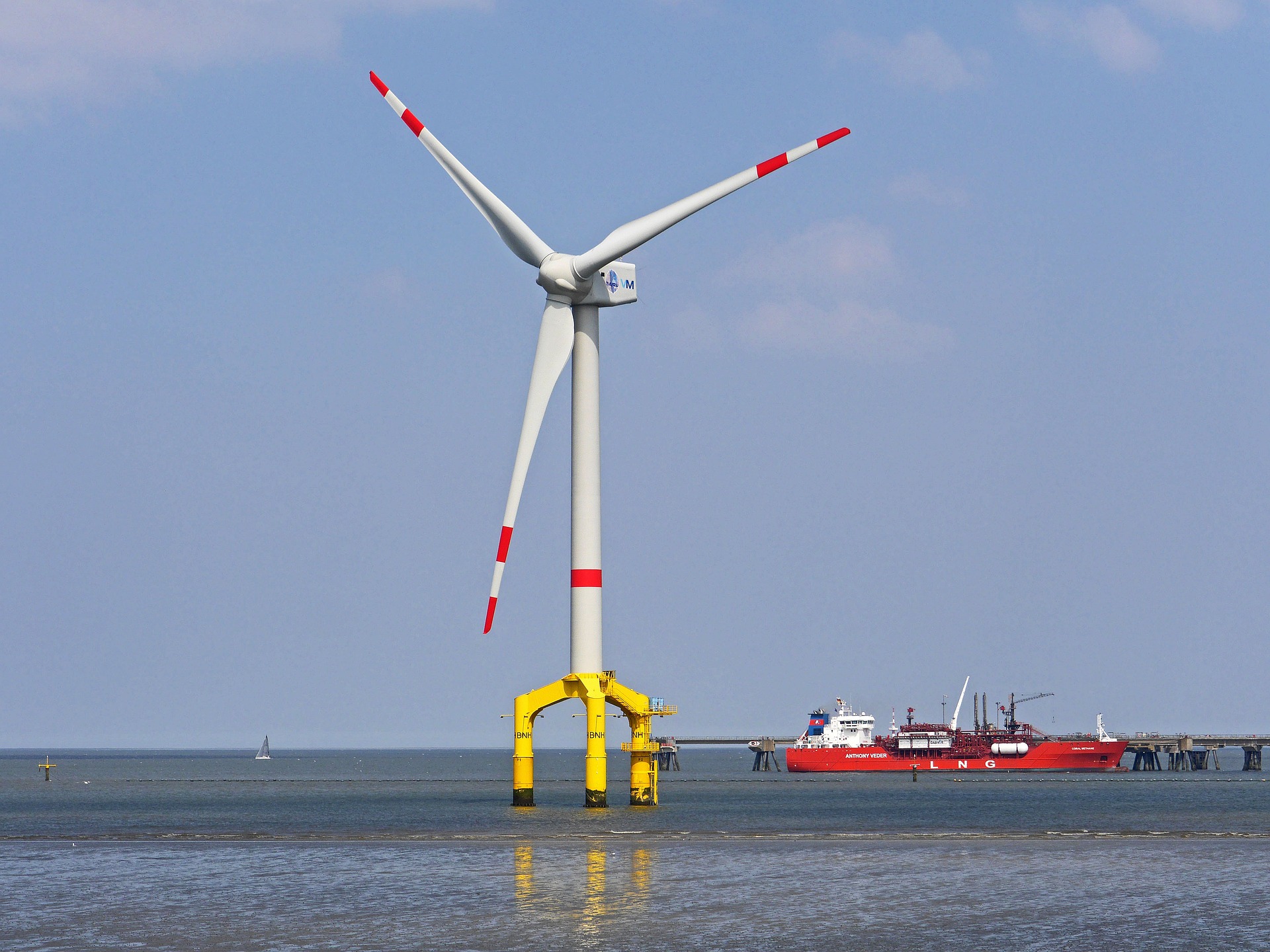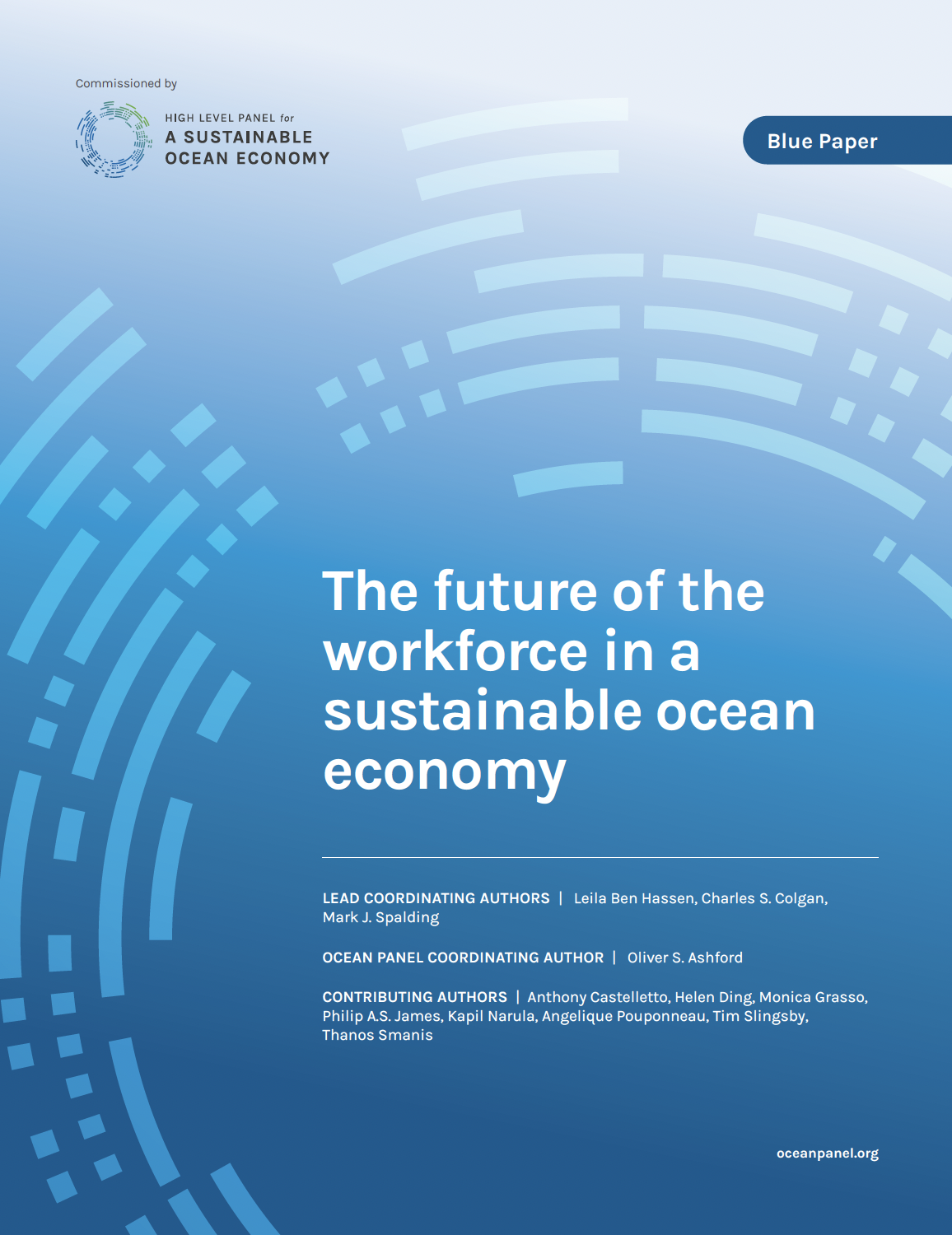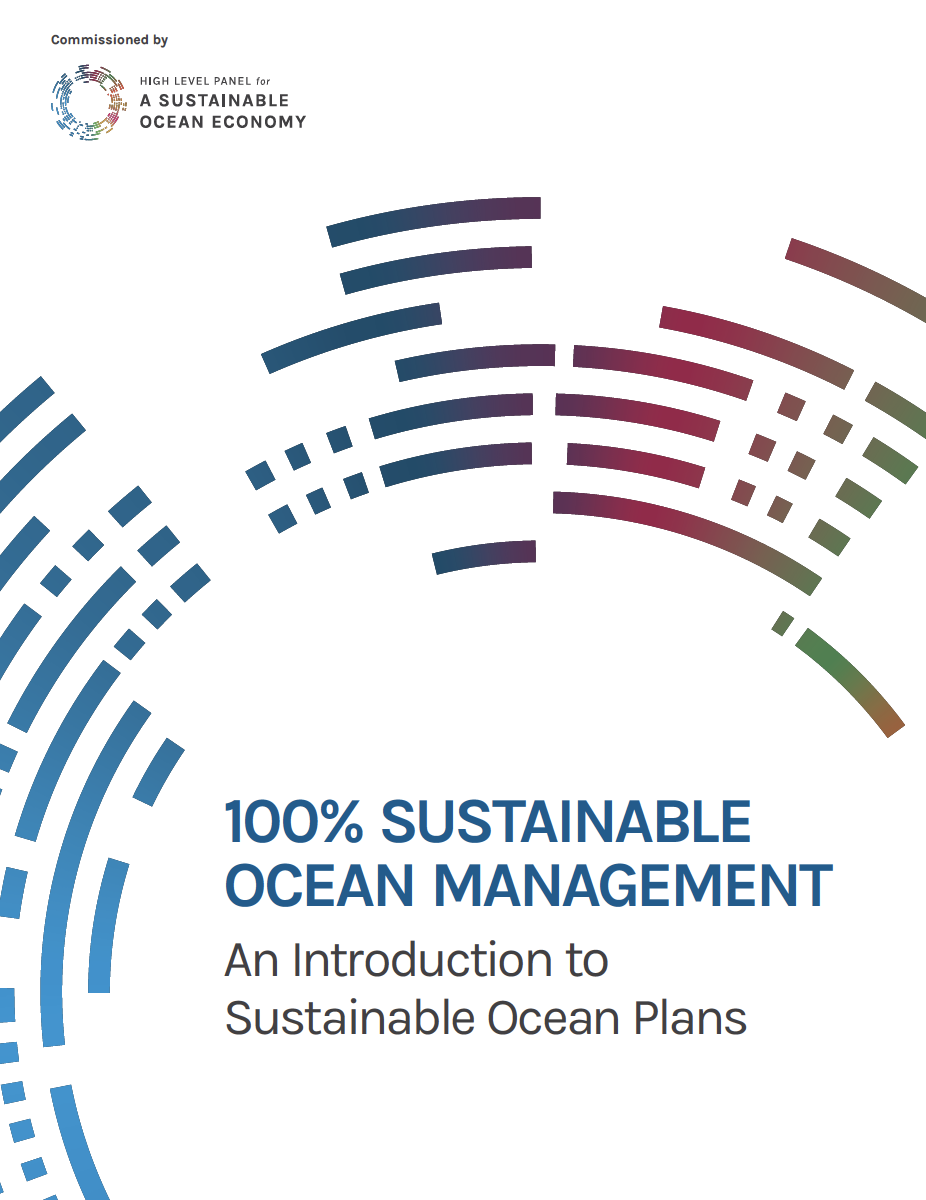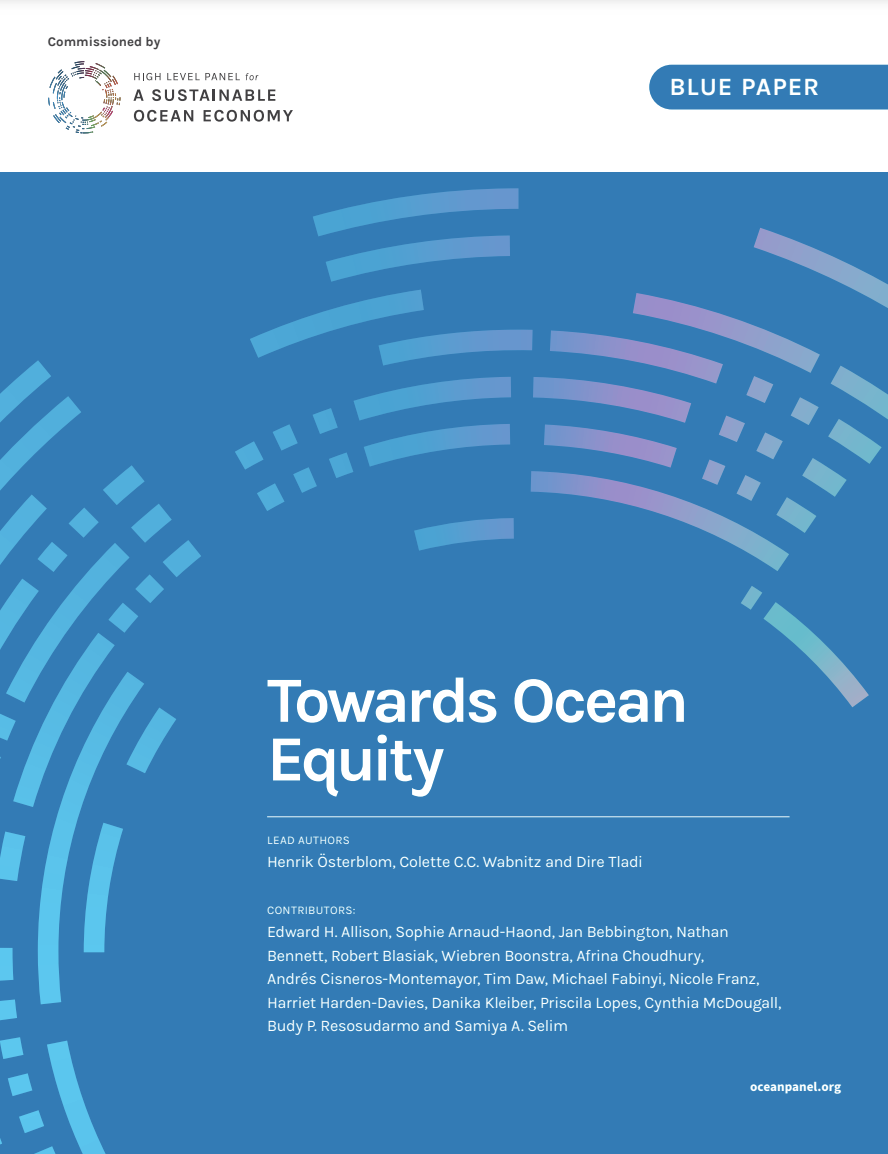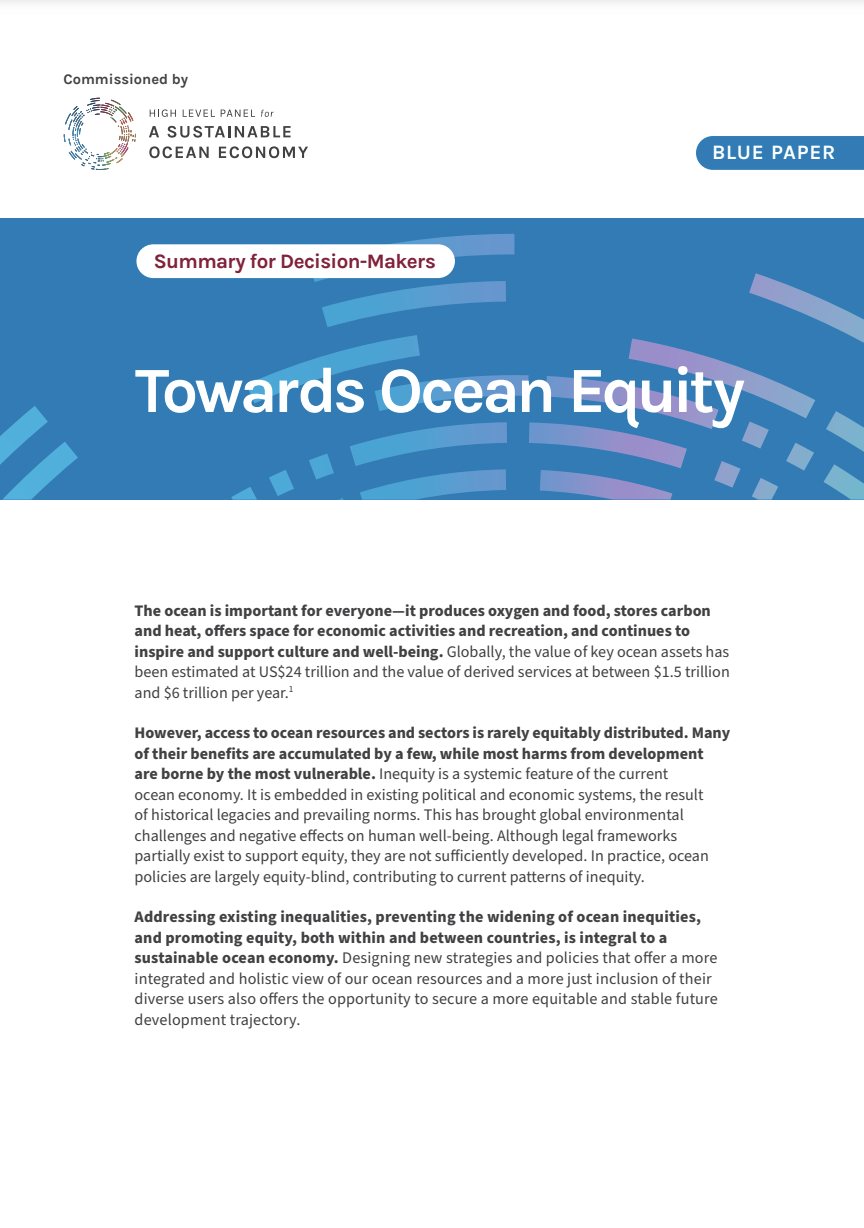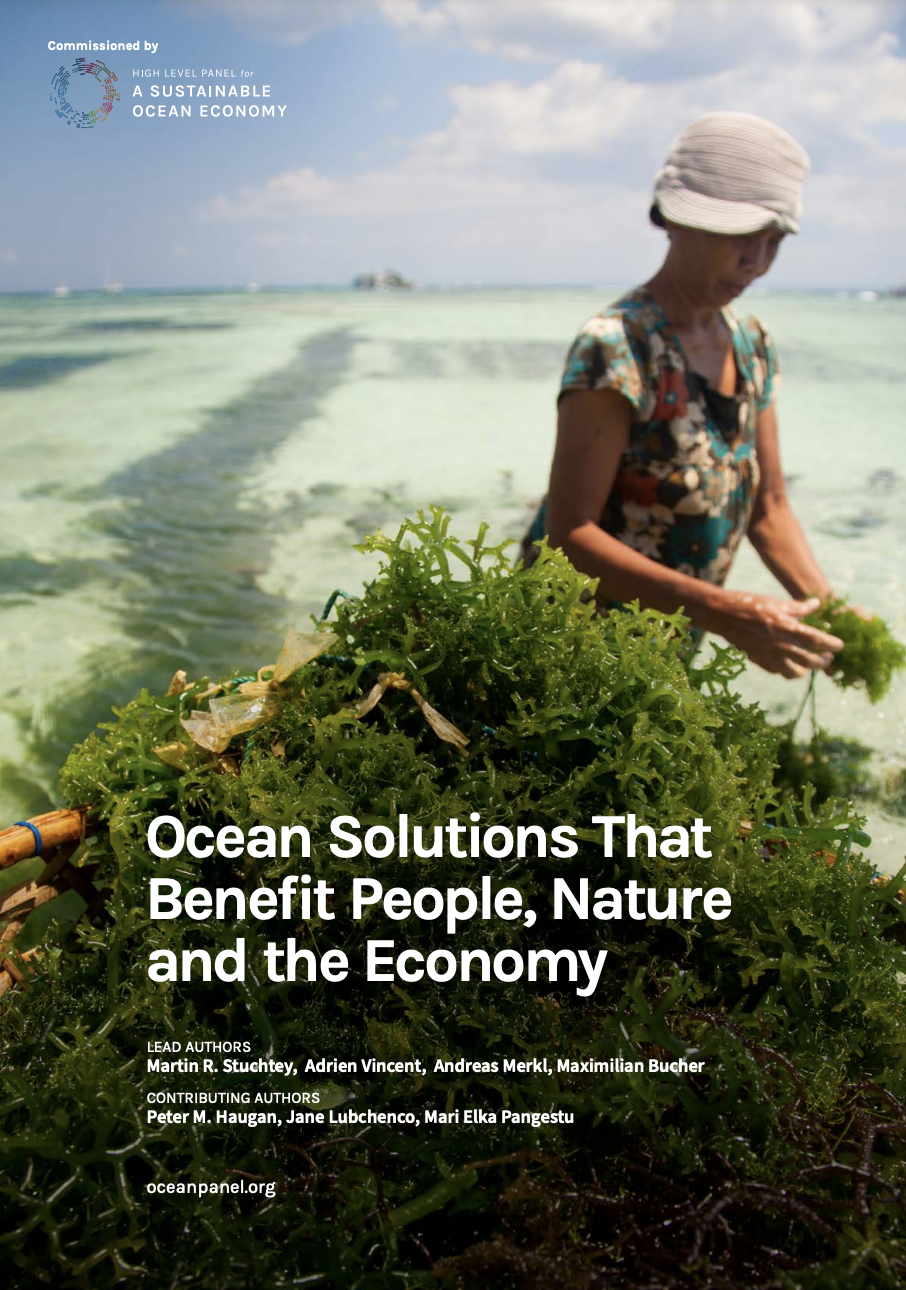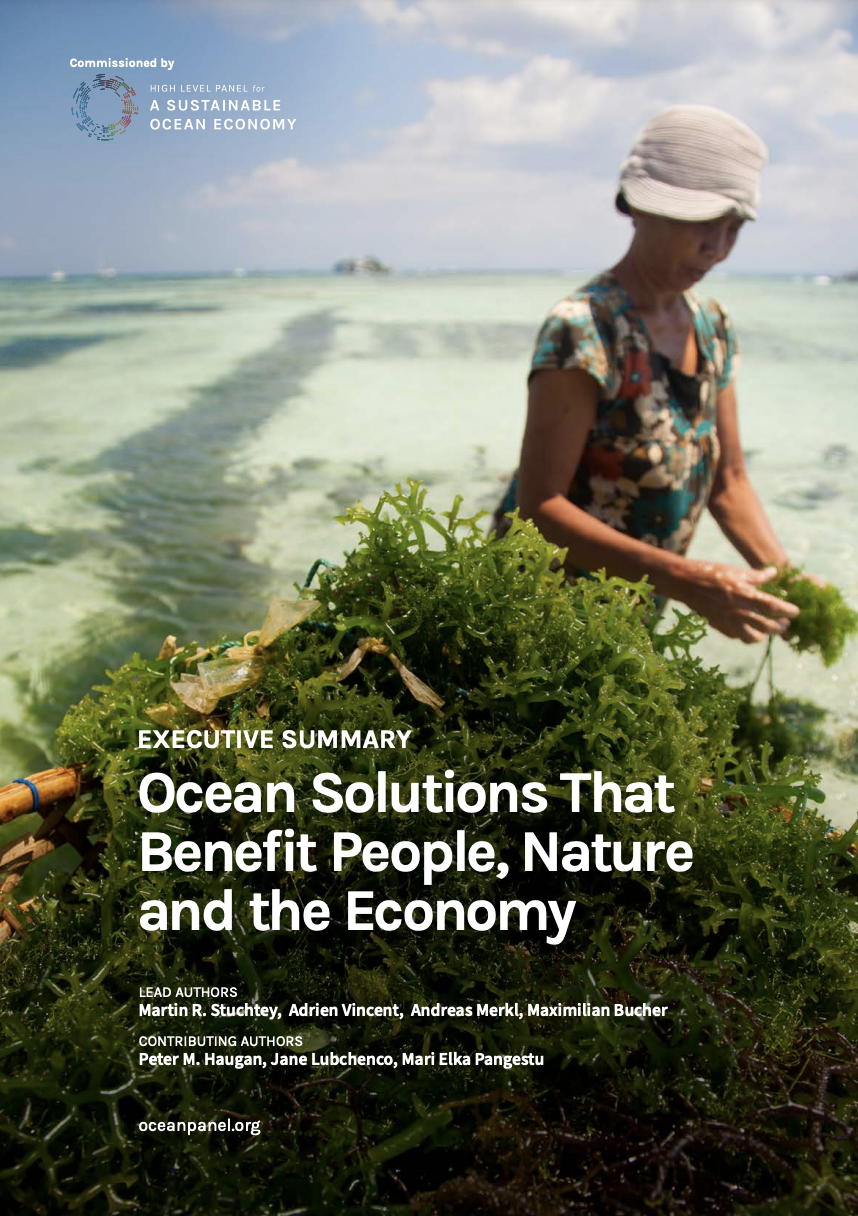This Blue Paper was commissioned by the Ocean Panel to provide a glimpse of what a sustainable ocean economy may look like for people over the next 25 years. It draws from the best available data and literature, and in-depth expert consultation, to examine the future of employment within a range of ocean sectors.
The paper provides advice on how different stakeholders can work towards the vision of a sustainable ocean economy. But to achieve this potential, a just transition that incorporates inclusion and fairness is essential. The authors identify the critical challenges that need to be surmounted, including addressing data limitations, skills gaps, insufficient training and educational resources (especially in developing nations), regional disparities in infrastructure, and inadequate funding and institutional capacity.
Among other key findings, the report highlights:
- The sustainable ocean economy is a major opportunity for job creation, offering new and diverse roles while supporting environmental and social goals.
- As the sustainable ocean economy progresses, employment could grow by 51 million jobs by 2050, reaching 184 million people globally — an increase of 1.5% per year from 2019.
- The best available data suggests that today, the formal ocean economy employs at least 133 million people globally. This number is likely to be much larger, for example subsistence fishing may raise the estimate of ocean economy jobs by roughly 100 million, but reliable data on the full scale of ocean-related employment is limited. However, its scale and diversity underscore the ocean’s importance now and in the future.
- Seven key drivers will shape the future of ocean employment: climate change, investment, sustainable practices, shifting demand, energy needs, innovation, and sustainability requirements.
Watch the report video:
DOI: https://doi.org/10.69902/64d6259f


 Précédent
Précédent
